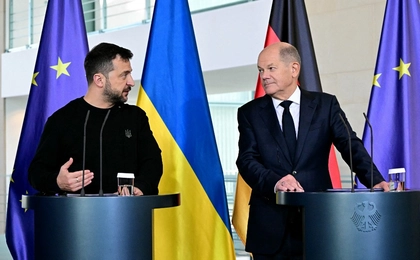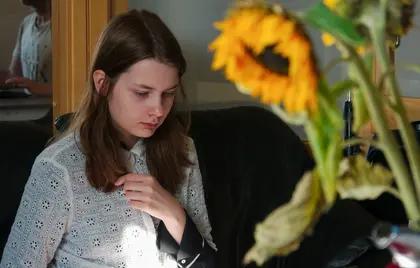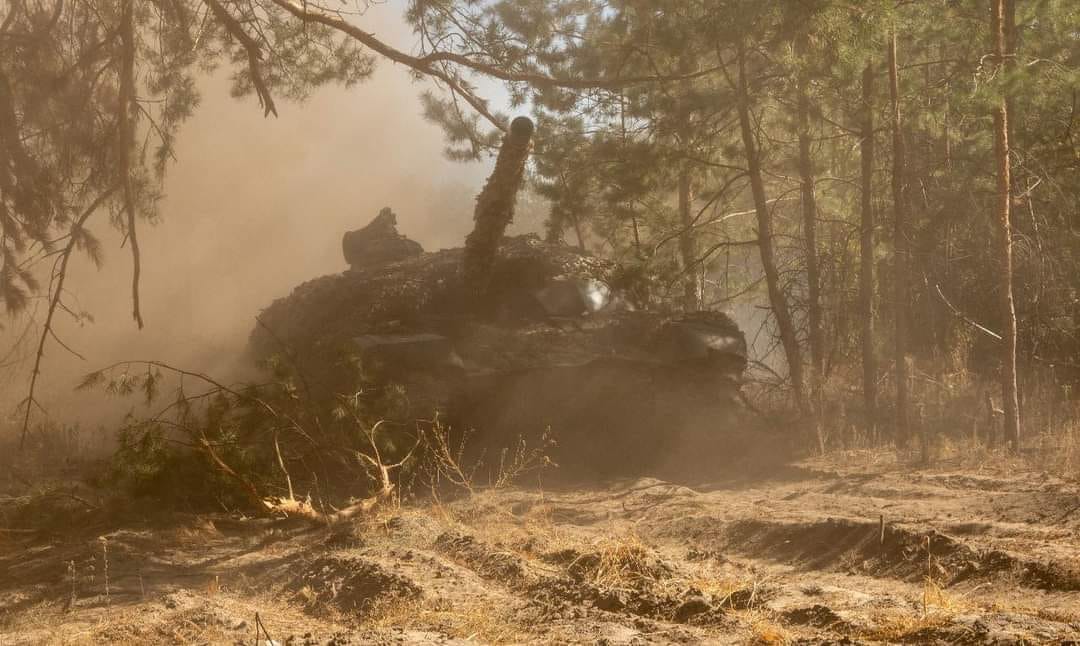Denounced and detained in native Russia for her activism on the military campaign against Ukraine, Olesya Krivtsova is now trying to call Vladimir Putin to account from Norway’s Arctic.
“There was a time when I was a student and had a normal life. But now everything has changed,” the 20-year-old rookie journalist told AFP from the Barents Observer online newspaper in Kirkenes, a mere 15-minute drive from the Russian border.
JOIN US ON TELEGRAM
Follow our coverage of the war on the @Kyivpost_official.
On the wall of her office is a printed image of the Russian president with the Orwellian caption, “Big Brother is watching you.”
After taking a stand against the war in Ukraine, Krivtsova was denounced by fellow students at the Federal University in Arkhangelsk in northern Russia in December 2022.
After Moscow launched its offensive in February 2022, she began putting up anti-war stickers around her town and posting criticism of Putin on social media.
- Putin spider -
She even got a tattoo on her leg of a spider with Putin’s head.
“I had it done directly after the start of the war,” Krivtsova said, a very personal act of defiance that she said was “a release” from the frustration she felt at the time.
Arrested by police and taken in for questioning, she faced charges of “discrediting” the Russian army and risked up to 10 years in prison.
“I ended up under house arrest. As I was awaiting the court’s decision I understood that if I didn’t leave... there was a high likelihood I’d end up in prison,” she said.

Ukraine Slams Scholz After First Call With Putin in Two Years
She fled to Lithuania where she filmed herself cutting off her electronic ankle bracelet, posting the video on social media. She also expressed interest in working as a journalist.
“That caught our interest,” Barents Observer founder Atle Staalesen told AFP.
“Journalism needs brave people these days and Olesya is one of the bravest people we know,” he said.
They offered her a spot as a trainee, so she travelled to Norway’s far north to start a new life.
“I’ve gotten used to it quite well because the climate is the same as back home,” Krivtsova said, sporting pink sneakers with bright green socks.
The Barents Observer has become a leading provider of news from the Far North over the past two decades, publishing in both English and Russian.
Krivtsova became a full staff member in late August, the fourth exiled Russian journalist to join the newsroom.
But while the other staff have years of experience, Krivtsova needed to learn a new craft.
“She has more of an activist and student background than a journalistic background,” Staalesen said.
“What we have seen so far is very, very promising,” he added, noting that her experiences in activism and the Russian justice system have been an asset.
- ‘Witch hunt’ -
One of her first articles was about the crackdown on the protest movement in her former home of Arkhangelsk.
Russia has fallen to 164th place out of 180 in Reporters Without Borders’ press freedom index, a ranking Norway has topped for several years.
The four Russians at the Barents Observer make up one of the hubs of exiled journalists covering Russia from abroad in places such as Tbilisi, Yerevan, Vilnius and Riga.
Amnesty International last year denounced a “witch hunt” by Russian authorities against those speaking out against the war in Ukraine.
Given developments in her home country, Krivtsova doesn’t see herself returning anytime soon.
“I don’t think so, for the next 10 years at least, definitely not,” she said.
You can also highlight the text and press Ctrl + Enter






